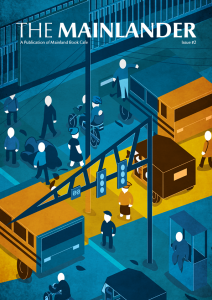
Just before the elections that brought in the current administration to power, Nigerians were told that the APC Candidate, General Muhammadu Buhari was not going to participate in any debate. Many were shocked; some saw nothing untoward about it, and even excused it. While the rest decided to ignore what it meant. Instead, the APC released a manifesto, that in hindsight, now looked more of fiction than words born of meticulous planning, and backed by research or serious political will.
I remember watching events unfold with a palpable disinterest. We had been there before, and I believed, wrongly, that Nigerians had little to say in the political process that brought Politicians to power. And I wasn’t alone. And I have come to realize certain Politicians bank on such thoughts to win. They bank on our disinterest, which gives them the baton with which they control the narrative and subsequently, the results.
Buhari, who had contested the Presidential elections three times prior to 2015 and lost all, won the APC’S primary by beating Kano State Governor Rabiu Kwakwanso, Former Vice-President, Atiku Abubakar, and Rochas Okorocha, without much as articulating his plans for the country. His biggest attributes were not his ability to sway with his words, or his intellectual sagacity, but the perception of him as a sort of savior, especially in the North.
He was what you could call a populist candidate, adapted into Nigeria’s inherent peculiarities, and therein lied my scepticism. Populism elevates the individual over the system; and tries to sell a notion of a messiah that is all knowing and who has the sole attributes to bring change. Buhari successfully styled himself as the man who was incorruptible and who has an active disdain for the elites who have been plundering our resources for the better part of the country’s independence.
Even though it took a coalition with former PDP party members for him to stand a chance in the election, Buhari directed most of his angst against the same ruling elites, taking great pains to contrast himself with them. In a speech to APC delegates just before the election, he said; “while some who have occupied those same positions have grown mysteriously rich, I still live on my army pension. I own no companies profiting from government contracts.”
“I am what you see before you – a simple man who believes in serving both God and his country. A man who is impatient for change, who loves Nigeria and seeks to serve it once again.”
Buhari, rode on his wave of popularity in the North, and then made the right coalitions in the south and West to win just enough to be declared President.
It mattered little that for all his years outside power, he had little to show for it, and his economic policies while he was head of state was neither here nor there. Without much evidence to back himself up besides the cliche, he still managed to control the narrative that he was a savior ready to rid Nigerians of corrupt elites.
In 2011, Goodluck Jonathan, then the Vice-President campaigned with something almost akin to his successor. Even though he had been in around the corridors of power for the better part of the decade, and had benefited from it, he still ironically, and successfully painted himself as an outsider. He was obviously helped by the so called “Cabal” during the last days of Yara Dua who tried to stop him from becoming President, even though it was the constitutional thing to do.
His viral campaign about having no shoes, and his journey from grass to grace had one end game – to make him look like the ordinary Nigerian who has but his dreams and hopes, and in Jonathan’s case, also a good name that brought him luck. Not to mince words, Jonathan was no outsider and the whole “no shoes” was to sell us a poor candidate. He had been deputy Governor and then later, Governor of Bayelsa State. Yet, somehow, they managed to control the narrative so much so that Churches and even Comedians started using him as an example of the will of God and the importance of giving your child a positive name. My thought then, and still my believe now, is that any candidate with his years in power who has little or zero tangibles to show, and still has to pander, mostly, to the emotional and intangibles, has to be questioned, vigorously.
And I see us making the same mistakes again.
One of the biggest mistakes we could make, is to allow those who colluded to plunder our common wealth and were rightly butted out in almost emphatic fashion, to reinvent themselves, not only as beacons of good governance, but as the only true hope of the common man. We should not allow them control that narrative. If not, then we haven’t learnt anything, and history will mock us, before repeating itself, loudly.

